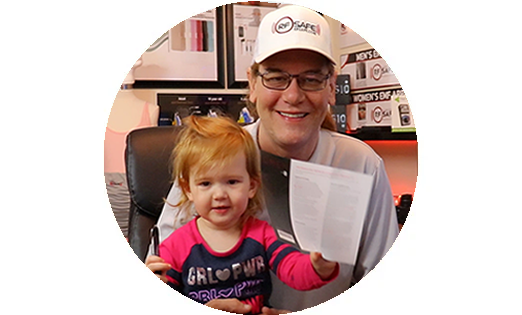Is Your Cellphone Really Safe?
Newsweek
Journalists: Claudia Kalb And Karen Springen
July 30, 2000
Dialing For Cancer? A New Study Says Risks From Cell Phones Remains Unclear
A controversial new article renews concerns about health hazards
Shari Welsh can’t imagine life without her cell. She brings it everywhere—biking through the hills, driving in the city. “I feel so much safer,” she says. But at the same time Welsh, 32, can’t stop thinking about whether she’s really protecting herself at all. “A lot of times when I’m using my cell phone,” she says, “I wonder if I’m going to get brain cancer.”
And so do a lot of other people. A whopping 100 million Americans now use mobile phones, and tens of thousands of new customers wire up every day. Health concerns first made major headlines in 1993, when a man alleged that his wife had died of brain cancer from cell-phone use, sued the manufacturer and appeared on “Larry King Live.” (The case was dismissed.) This week Medscape’s online journal, MedGenMed, raises new questions with a controversial article surveying the current wireless medical research. Its conclusion: industry claims that cell phones are absolutely safe are “no longer supportable.” George Carlo, the paper’s lead author, says he was shocked by the data. “We’re beginning to see a momentum of scientific and medical studies,” he says, “that are now pointing in the direction of potential problems.”
Safety concerns are clearly worth investigating. It has long been known that intense exposure to electromagnetic radiation can harm human tissue. The question is, can the tiny amounts emitted by cell-phone antennas do serious damage? Carlo, the former head of the industry-funded Wireless Technology Research program (set up in 1993 to study cell-phone safety), surveyed more than 50 studies, many of them still unpublished. Most showed no link. The “red flags” he cites come from recent work—much of it preliminary and in no way conclusive.
Carlo’s review of the science, much of which he has already presented publicly, has drawn fire from industry officials, who say he is exaggerating the findings. Based on the science so far, says Jo-Anne Basile of the Cellular Telephone Industry Association, “there are no adverse health effects from the use of wireless phones.” And some of the very researchers Carlo cites object to the way he has presented or interpreted their data and say it requires far more analysis. Carlo, who has a law degree and a Ph.D. in pathology, has spent years doing industry-funded research (he also worked for breast-implant manufacturers) and has been a controversial figure in the health field. He says he’s just doing his job. Initially, he thought the data would turn up empty; now, he says, there are questions.
Some of these questions will be more fully addressed over the next few years. This week the Food and Drug Administration and the CTIA meet in Washington to collaborate on safety research. The National Cancer Institute is now analyzing data from a major survey on the causes of brain cancer, which includes an analysis of cell phones. And the World Health Organization, noting that there will be as many as 1.6 billion cell-phone users worldwide by 2005, is planning a study in at least 10 countries to examine links to head and neck cancer.
In the meantime, if you’re worried about cell-phone safety, you can take some precautions. Start with an earpiece. Get an old-fashioned cell phone for your car, so that the antenna is outside the vehicle. Hang up when signal strength is bad, says Dr. John Moulder, a radiation oncologist at the Medical College of Wisconsin—that means the phone has to work harder and emit more radiation. Use digital phones (less radiation) rather than analog. And beware of devices that claim to shield radiation, since anything that blocks transmission keeps the phone from working properly. Finally, put it down when you get behind the wheel. You might enjoy the quiet.








